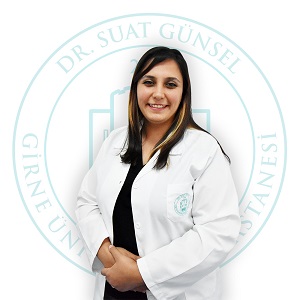
This year 15th of March has been celebrated as World Sleep Day. This years theme is ‘Healthy Sleep, Healthy Aging’
Dr. Suat Günsel University of Kyrenia Hospital Otorhinolaryngology Specialist Pınar Tunçbilek Özmanevra MD., stated that according to a research sleep is vital as much as eating and drinking. Özmanevra answered the following questions about World Sleep Day;
What is the aim of World Sleep Day?
World Sleep Day has been celebrated every year since 2008 on friday before March Equinox with the initiative of the World Sleep Society in order to raise awareness of the importance of a good and healthy sleep, sleep diseases and the treatments. Unfortunately people do not sleep enough and therefore experience mental and physicla problems. Some studies have shown that there is a connection between sleep and childhood obesity. Insufficient and poor quality sleep can lead to short and long term attention deficit, learning disabilities, impaired concentration, memory problems, depression, anxiety, psychosis and alzheimer.
What other effects do sleep disorders have on health?
First of all, all living things in the world organize their life functions according to the movements of the sun. This vital function called circadian rthythm or biological clock controls our sleep-wake cycle, body temperature, eating habits, metabolism and hormonal release cycles. Although it has been known since the 1700s that human beings had an internal clock, the destructive effects of circadian rhythm disorders on human health have been under investigation for the last 20 years. Circadian rhythm distortion most frequently occurs in two ways; night shifts and jetlag. Protecting circadian rhythm reduces the risks of sleep disorders, mental illnesses, obesity, diabetes, and heart diseases. The most common form of sleep disturbances is snoring and the most severe form is obstructive sleep apnea. Snoring is seen in at least 10% of adults and 12% of children. Pauses in breathing during sleep are called sleep apnea. In people with sleep apnea, waking up tired in the morning, waking up with a headache, complaints during the day and sleepiness are observed. If left untreated for a long period of time this leads to problems such as hypertension, ischemic heart disease, stroke and heart attacks. In children, very serious problems such as height and weight, school failure and problems in mental development may occur. In addition, behavior disorders, hyperactivity, nighttime bed-wetting, heart and rhythm disturbances can be seen.
What are your recommendations for the diagnosis and treatment?
Snoring or sleep apnea is first observed by a family member. At this stage, an otolaryngology specialist should be consulted. Children who snore should undergo scanner tests. The examination of your nose, throat and neck by your doctor will reveal whether the condition is caused by simple snoring or obstructive sleep apnea and if necessary an examination may be required within a sleep center.
Finally, what are your suggestions for healthy and quality sleep?
First of all, do not take any stimulants such as caffeine, nicotine or alcohol and avoid heavy meals before sleep. Take part in physical activities during the day and not before you are planning to sleep. If possible, you should not have any television, computer or cell phone in your bedroom. Stick to a regular sleep schedule, even on the weekends.